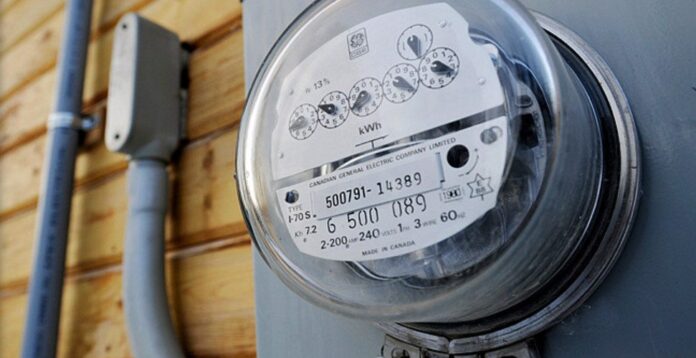Rural Nelson Hydro customers are facing a rate increase of at least 14 per cent in the new year.
Nelson Hydro presented its 2026 and 2027 budget projections at a workshop on Sept. 23, which confirmed the utility is submitting a two-year rate application to the B.C. Utilities Commission, which will set rates in advance for both years.
Urban customers face a 2026 increase of seven to nine per cent and a three to five per cent hike in 2027.
For rural residents, the proposed 2026 hike is more than the last two years combined.
Rural rates are set to rise 14 to 16 per cent in 2026, followed by another three to five per cent increase in 2027.
Contributing factors
Rural and urban customers face different pressures in 2026.
For rural customers, a main rate driver is a change to the cost of capital ordered by the B.C. Utilities Commission (BCUC).
The cost of capital is the return the regulator allows a utility to earn on its investments, such as power plants, transmission lines and infrastructure.
It is a key input in how a utility calculates its revenue requirement – how much money it needs to cover costs, including return on investment – which then determines rates.
“It’s about setting fair return for all utilities in British Columbia,” said Nelson Hydro general manager Scott Spencer.
For example, Nelson Hydro invests capital to build and maintain its infrastructure, then the BCUC sets rules so it can recover operating costs, depreciation and a return on capital.
The return has to be high enough to attract investment and maintain good credit, but not so high as to overcharge ratepayers.
“It sets the allowable return or the return on equity that utilities are able to collect to sustain their capital investment. Aging infrastructure replacement, modernizing utilities. All utilities face these challenges and it is the utility’s responsibility to put that money upfront to get that,” Spencer said.
“Then as a return on their investment, for example, in bigger utilities, they spend millions and billions of dollars on these and then they get a return that goes back to their shareholders or is reinvested back into more capital to sustain the utility.”
The BCUC initiates a generic cost of capital proceeding every 10 years.
The latest proceeding wrapped up last year and resulted in Nelson Hydro being directed to file a 2025 revenue application.
“They asked us to update our application to reflect the determinations and orders that were given as part of the generic cost of capital, the fair return standard,” Spencer said.
During the proceedings, Nelson Hydro argued it should receive more than the benchmark utility, FortisBC, and was granted 50 basis points above the benchmark because of the risks it faces as a small, rural utility.
That decision, applied retroactively to January 2024, is reflected in the 2026 rural increase.
“It is having a very big impact on our rates, especially for 2026.”
Urban rates, on the other hand, are not regulated by the BCUC but instead driven by Nelson Hydro’s capital reserves.
Deferral accounts on rural increase
Beyond the cost-of-capital adjustment, deferral accounts are also contributing to the significant rural hike expected in 2026.
Rural customers can expect around a 15.1 per cent increase that year.
For the average household using 1,000 kilowatt hours a month, that means an extra $23.34 – more than 50 per cent higher than the 2025 increase of 7.54 per cent.
More than half of that increase (6.63 per cent) is for deferal accounts.
Deferral accounts track costs that were not collected in previous years but now need to be recovered.
“Let’s say we budget $100,000 for storm repairs, based on a five-year average. If we only spend $60,000, then we’ve overcharged and the $40,000 difference goes into a deferral account,” explained the city’s IT manager Nathan Russ.
“The opposite can happen too – if a storm costs $125,000, then the extra $25,000 goes into the account for recovery. It’s just a way to match rates to actual costs.”
Nelson Hydro maintains several deferral accounts, including storm recovery and variance accounts, which will be applied to rural rates in 2026.
Urban increase factors
For urban customers, rates are set by Nelson Hydro itself, not the BCUC.
Spencer blames the 2026 rate increase on the completion of the Mill Street Substation.
“We had the $9-million major project to rebuild the Mill Street Substation,” he said.
“That project is now complete, but it did deplete our reserves below our minimum level. So we’re having to pull more out of the reserve.”
He added it is critical Nelson Hydro rebuild its reserves because of major capital projects on the horizon.
“We’re working our way towards some other projects that are coming in 2028 and beyond, like automatic meter reading and advanced metering infrastructure. If those projects are approved, that will be significant. So we’re trying to build that reserve up.”
For the average urban customer using 1,000 kilowatt hours a month, the 2026 hike at 7.31 per cent equates to about $10 more.
The urban increase is roughly in line with the hikes imposed in 2024 (5.2 per cent) and 2025 (5.1 per cent).
More information on Nelson Hydro’s budgetting process can be found here.
Want to get your business noticed? Have you considered advertising through your local radio station? Speak to one of our sales agents and find out how radio advertising can boost your business today. Call 250-365-7600 or email Vista Radio.





